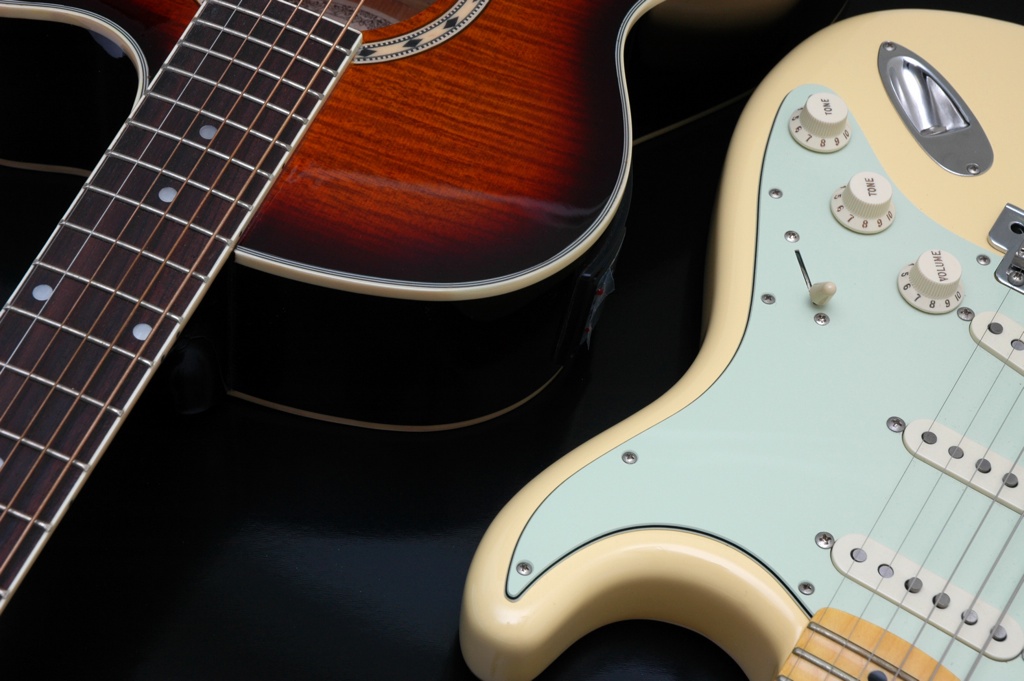
Two Paths For a Beginner Guitarrist
Every instrument gives us a chance to make unique music, and it’s in the hands of the aspiring musician to sort of lean towards a personality or identity behind it. In this case we’ll be going over some tips and thoughts surrounding the guitar.
As any other instrument, frst you have to learn the basics, this means getting used to pressing down the strings correctly, then parcticing scales, a few easy tunes, chords and then for many people there is a diverging point.
An aspiring guitarrist who chose the guitar because he had to choose an instrument in the classes their parents chose for him is very different than someone that begged their parents to buy a guitar. Of course the end result can vary but this usually matter in the end.
After this step, the aspiring guitarrist has an idea of what he or she wants to sound like when becoming a good guitarrist. This will slightly push the person towards a learning method.
Classical Way

For starters, this means using an acoustic or spanish guitar, and using mainly your fingers to play instead of a pick like most electric guitar players.
This path is also a good idea if the sound you are looking for is all about classical complex structures and compositions that require a good amount of practice to read music and play it
In an interview with Brad DeRoche, classical gutarrist Raphaella Smits talks about some aspects of classical guitar playing.
It’s like an orchestra, it’s like a whole story, an entire world. So, it depends on the piece. What controls your thoughts, apart from everything technical, is the piece. That’s what makes each piece so special. And I think you feel more about the music than you think about it. I’ll give an extreme example: If you feel like it’s heaven, you are not thinking about the sky and the clouds and the sun and the stars. That would be nonsense of course. If you think about heaven, that’s something very spiritual. If you think about something earthy, it could be a very primitive feeling. So, it’s never very clear. Somehow music is not very human. How you move your fingers, how you sit, how your memory works; that’s the physical part. It’s like building a house, you know?
Self-Taught or Non Academic Teaching

While it’s not a necessary rule, self taught guitarrists tend to lean towards rock, blues or even some forms of jazz. This is mainly because of the nature of these types of music which have an emphasis on feeling, and strong imposing sounds rather than highly trained technique.
There are many good examples of this. Brian May from Queen was self taught, and while his first guitar was a classical acoustic guitar he then built his own first electric guitar because it had more sense with the type of music he wanted to play.
Kurt Ballou from the Metal band touches the subject of self taught musicians saying:
“I never had guitar lessons (…) My dad played a little bit of guitar, he never really taught me anything, but he did give me a chord book. I had played saxophone and piano prior to it, so I sort of transferred my musical knowledge over to guitar. We’re all just students of the artists we like who we spent listening to while we were younger and attempting to mimic what we heard on these records.”
He says that being self-taught made him appreciate some things a bit more than musicians who take lots of lessons and tend to be more technical. “Lessons seem to focus more on the dexterity of playing, whereas people who are self-taught have to use their ears more to decipher what they’re hearing,” he continued. “I think you become a more observant player that way and you also start to learn how an ensemble interacts with each other.”
Both ways are good, they are just different approaches to learning how to play guitar but the best idea would be to experiment wth both ways to some extent, and think that the first one grants you better tools, and the second one helps you express yourself in a more open and welcoming way.
In the end there are no laws or rules, but the experience will be different and this will ultimately affect your identity as a musician.
